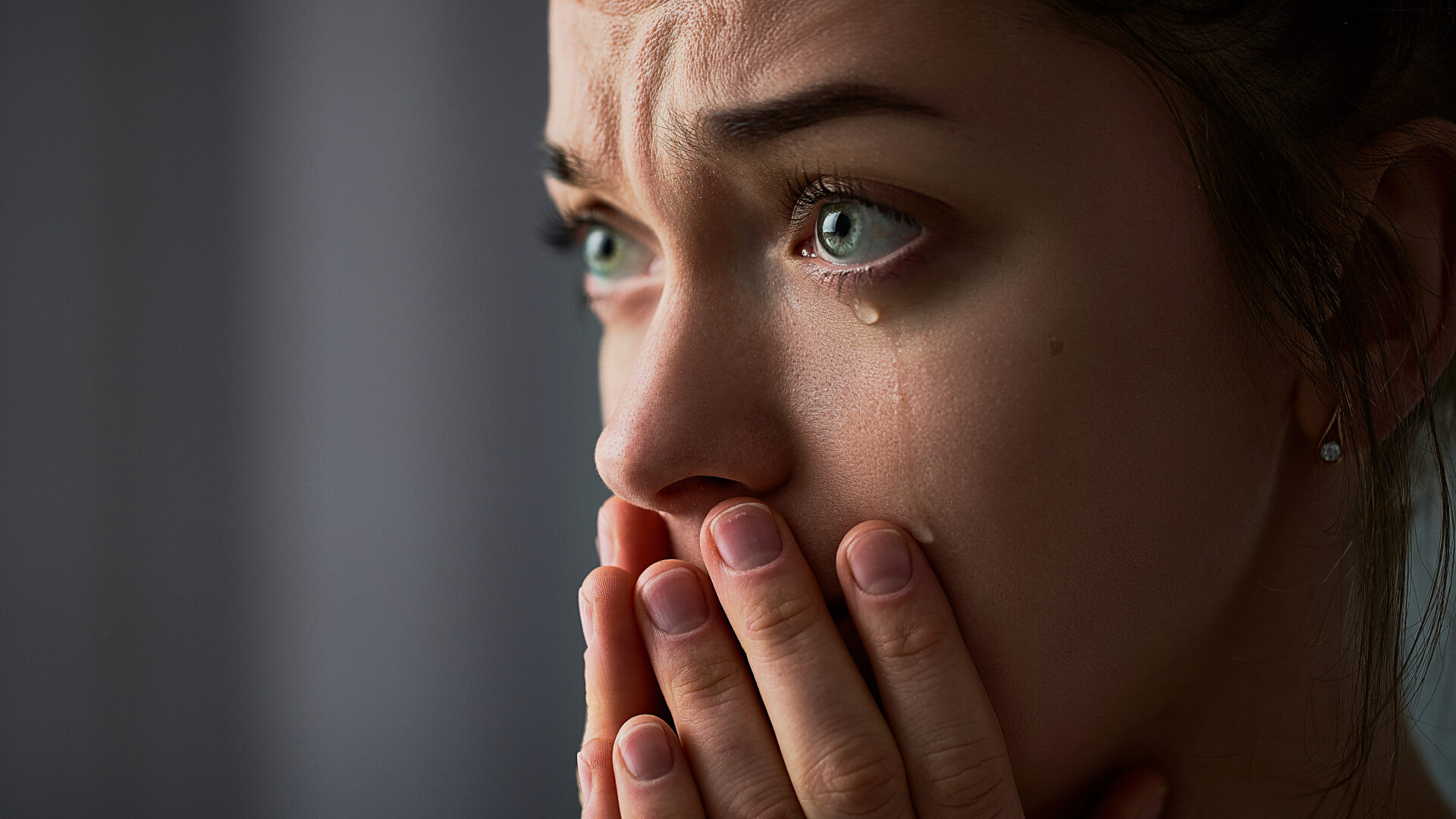Staying up late worrying about things that are out of your hands is a common problem. As a matter of fact, even if your hands are clean, do you feel the need to wash them constantly? Just a few examples of what it’s like to suffer from an anxiety disorder. There are a wide variety of symptoms to choose from, which is due to the fact that there are numerous types. Our experienced team at Delray Beach Psychiatry is here to help you understand your anxiety diagnosis and develop a treatment plan that works for you. With the help of our three highly qualified doctors, you can finally get your life back.
At some point in our lives, we all experience some degree of anxiety. It could be the butterflies in your stomach before a presentation or the jitters before a date. Regardless of how you feel, you’ll eventually get over it and go on with your life. You may be suffering from an anxiety disorder if these feelings begin to appear more frequently and interfere with your ability to carry out daily activities. Those who suffer from anxiety disorders experience incapacitating fear and worry that interfere with their day-to-day activities. More than 40 million adults over the age of 18 suffer from an anxiety disorder, according to the National Alliance on Mental Illness. Anxiety is a problem that affects an increasing number of people. Some of the symptoms of this disorder overlap, while others are unique to the specific type of anxiety. There are several types of this disorder.
If you’re suffering from anxiety, you may notice a wide range of symptoms. Physical and emotional manifestations are both possible. Extreme anxiety or fear is one of the most telling signs you’re on the right track. Physical manifestations include shortness of breath or a rapid heartbeat. Anxiety-induced nausea and vomiting are possible side effects.
- Trouble concentrating
- Nightmares
- Panic attacks
- Trouble sleeping
- Flashbacks
- Unwanted thoughts
- Obsessive behaviors
- Avoidance behaviors
“Anxiety” is a broad term that encompasses a wide range of mental health issues, each with its own unique set of signs and symptoms. Generalized anxiety disorder, panic disorder, specific phobias, agoraphobia, social anxiety disorder, and separation anxiety disorder are a few of the many types of anxiety disorders.
Generalized Anxiety Disorder
As a result of constant and excessive worry, people with generalized anxiety disorder are unable to carry out their normal daily activities. Physical symptoms, such as restlessness, apprehension, irritability, fatigue, difficulty concentrating, tightness in the muscles, or difficulty sleeping, may accompany this persistent worry and stress. Worries about the mundane, such as work obligations, family health, or non-essentials like errands, car repairs, or appointments, are all too common.
Panic Disorder
An overwhelming combination of physical and psychological distress is the primary symptom of panic disorder, which manifests itself in frequent panic attacks. When someone is having an attack, a number of these symptoms are present simultaneously. Many people who have a panic attack believe they are having a heart attack or other life-threatening illness because of the severity of the symptoms. Alternatively, they could go to the hospital’s emergency room. Anxiety attacks can either be anticipated, like when a person is afraid of an object, or unanticipated, like when they appear out of nowhere. Panic disorder usually begins in people between the ages of 20 and 24. For example, depression or post-traumatic stress disorder (PTSD) can lead to panic attacks.
- Palpitations, pounding heart, or rapid heart rate
- Sweating
- Trembling or shaking
- Feeling of shortness of breath or smothering sensations
- Chest pain
- Feeling dizzy, light-headed, or faint
- Feeling of choking
- Numbness or tingling
- Chills or hot flashes
- Nausea or abdominal pains
- Feeling detached
- Fear of losing control
- Fear of dying
Phobias
A specific phobia is an extreme and unwarranted fear of a specific object, situation, or activity. Unfortunately, patients are unable to overcome their excessive levels of anxiety. Some people are so terrified of their fears that they will do anything to avoid them. Fear of flying, public speaking, and spiders are all examples of phobias.
Agoraphobia
Those who suffer from agoraphobia are afraid of being in situations where they may be unable to flee or where help may not be available in the event of panic attacks. Anxiety is excessive in comparison to the actual situation, lasts for at least six months, and impairs daily activities. People who suffer from social anxiety tend to avoid social situations, seek company, or suffer through them despite their best efforts. A severe case of agoraphobia can leave a person unable to leave the house if left untreated. Only when a person’s fear is so overwhelming that it significantly hampers their day-to-day activities can they be diagnosed with agoraphobia. At least two or more of the following situations can trigger agoraphobia:
- Using public transportation
- Being in open spaces
- Being in enclosed places
- Standing in line or being in a crowd
- Being outside the home alone
Social Anxiety Disorder
Anxiety and discomfort about being humiliated, rejected, or looked down on in social situations are common symptoms of social anxiety disorder. Anxious people try to avoid or endure stressful situations as much as possible. The fear of public speaking, meeting new people, or eating/drinking in public are all examples of phobias. Anxiety or fear impairs day-to-day activities and lasts for at least six months.
Separation Anxiety Disorder
When a person has a separation anxiety disorder, they are terrified of being separated from the people they are most attached to. For children and adults, it can last anywhere from four weeks to six months, depending on the severity of the condition, and it interferes with the person’s ability to function normally. One of the hallmarks of separation anxiety disorder is an individual’s inability or unwillingness to leave home or be alone, as well as the occurrence of distressing dreams or nightmares about being separated from the person they love. Distress-related physical symptoms can manifest as early as childhood, but they can persist into adulthood.
Anxiety disorders have yet to be fully explained, but it is likely that a combination of genetic, environmental, psychological, and developmental factors play a role. It is possible that anxiety disorders are a result of both genetic and environmental factors. Make an appointment with your doctor to rule out any physical causes for your symptoms. A mental health professional can help you find the best treatment if you have been diagnosed with an anxiety disorder. As a result, many people who suffer from anxiety disorders do not seek treatment. They don’t know that they have a disease that can be treated with medication. Therapy and medication are the most common treatments for anxiety disorders, despite the fact that each disorder has its own unique characteristics. A combination of these treatments can be used. Anxiety can be reduced through cognitive behavioral therapy (CBT), a form of talk therapy that teaches a person to think, react, and behave in a different way. There is no cure for anxiety, but medication can help alleviate the symptoms. Anti-anxiety and antidepressant medications are the most commonly prescribed ones, and they are only given for a short time. Beta-blockers, which are typically prescribed to treat heart problems, can also be used to treat anxiety-related physical symptoms.
Delray Beach Psychiatry; Psychiatrist Delray Beach
Anxiety disorder sufferers can do a variety of things to alleviate their symptoms and make treatment more effective. Meditation and stress management techniques can be helpful. In-person or online support groups can provide an opportunity for people to share their experiences and coping mechanisms. Learning more about a disorder’s specifics and helping loved ones better understand it can also be beneficial. Avoid caffeine, which can worsen symptoms, and check with your doctor about any medications. It is Delray Beach Psychiatry’s area of expertise. Make an appointment with them right away to get started on the road to recovery and developing healthy coping mechanisms.


